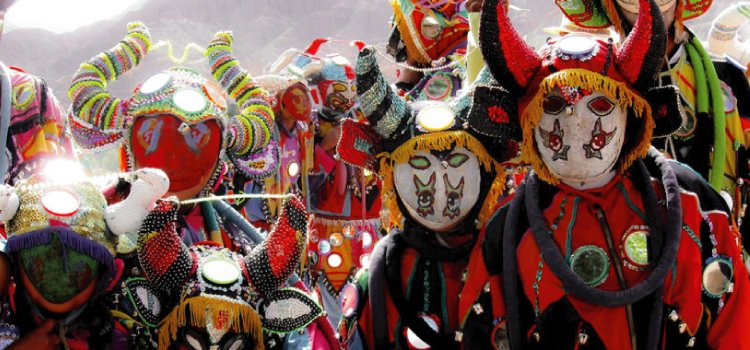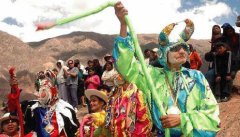
Carnival in Tilcara
Tilcara's Carnival is a celebration that dates back more than 500 years. It is carried out in different towns of the Quebrada de Humahuaca, being that of Tilcara the most important due to the influx of musicians, troupes and people from different places and countries that come to celebrate, decontract and liberate their spirit. Even for just a few days, the excuse of the carnival serves to connect with the passions, let the wishes flow and why not have a few more drinks.
It is also the festival of traditions and customs. Is that carnival is a syncretism of cultures. On the one hand, it is believed that the custom of the comparsas was brought by the Spaniards at the time of the conquest, to which it is mixed with the native music of the Andean peoples. On the other hand, the typical rites of the region emerge, because it is also a way of venerating the Pachamama.
 The carnival begins with the devil's digging and lasts 8 more days until it is buried again in a place that few know and is half secret. People are very relaxed dancing in the streets and disguise themselves with masks and live moments of collective fun. The meaning of this celebration has a lot to do with the fact that February is a rainy season. The devil is a kind of deity that is reborn every year with rains, and is a vital force that brings vegetation.
The carnival begins with the devil's digging and lasts 8 more days until it is buried again in a place that few know and is half secret. People are very relaxed dancing in the streets and disguise themselves with masks and live moments of collective fun. The meaning of this celebration has a lot to do with the fact that February is a rainy season. The devil is a kind of deity that is reborn every year with rains, and is a vital force that brings vegetation.
All this reminds us of the myth of Dionysus so well represented by Euripides in the Bacchantes. Dionysus (also known as the god Bacchus) is the god of rebirth, drunkenness, ecstasy and orgy. It brings with it the abandonment of forms so that its followers can be inserted in the flow of life. For this they dissolve their personality and their self, here we understand the reason for the masks.

